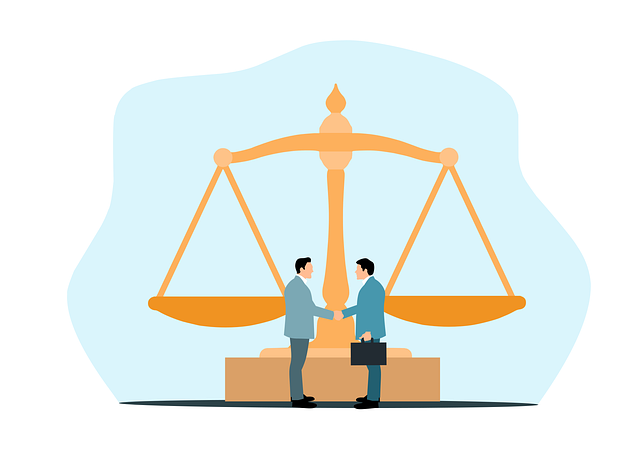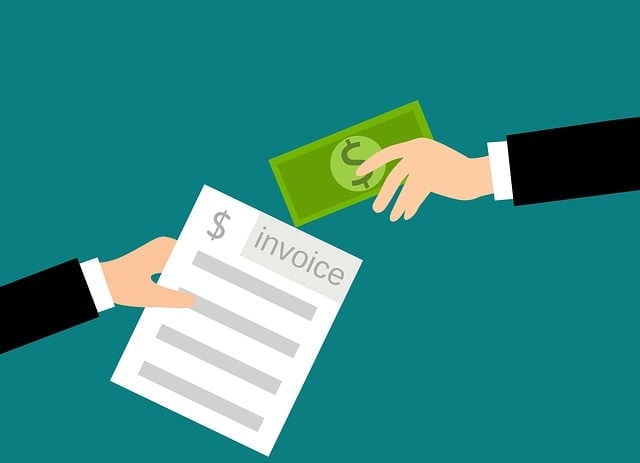What is a Small Business Lawyer?
A small business lawyer specializes in handling small businesses’ unique legal challenges. They assist with legal matters like business formation, contracts, compliance, and intellectual property and ensure businesses adhere to relevant laws and regulations.
Unlike other types of lawyers, such as criminal or personal injury attorneys, small business attorneys focus on helping companies navigate the complexities of business law. By understanding small businesses’ specific needs, they provide tailored legal solutions to protect owners and their ventures, adding to the value of a business.
What Legal Services Do Small Business Lawyers Provide?
Small business lawyers offer a wide array of legal services that cater to the needs of small business owners. They help ensure business owners have the legal support to operate smoothly.
Here are some of the most common services they provide:
Business Formation
A small business lawyer can guide entrepreneurs through the business formation process, helping them choose the right business structure. Options include sole proprietorships, partnerships, limited liability companies (LLCs), S corporations, and C corporations. These decisions impact taxes, liability, and operational flexibility, making the lawyer’s expertise invaluable for ensuring a solid foundation.
Business Licenses & Permits
Obtaining the correct business licenses and permits is crucial for legal operation. Small business attorneys help ensure compliance with local, state, and federal regulations, guiding owners through the often-complicated application processes and minimizing delays or fines.
Contract Drafting, Negotiating, & Reviewing
Contracts are essential for business operations. Small business lawyers assist with drafting, negotiating, and reviewing business contracts and agreements, ensuring they are clear, enforceable, and protect the business’s interests. This includes business contracts with vendors, clients, employees, and partners.
Employee Relations & Law Guidance
Navigating employment laws can be challenging for small business owners. A small business attorney helps establish compliant employee policies, draft employment agreements, and manage legal disputes, fostering positive employee relations while reducing legal risks.
Intellectual Property (IP) Protection & Copyrights
Small business lawyers can help protect intellectual property by securing copyrights, trademarks, and patents. Whether it’s safeguarding a business name, logo, or product innovation, these legal protections ensure a company’s assets remain secure from infringement.
Regulatory Compliance
Small business lawyers ensure compliance with industry-specific regulations, helping businesses avoid penalties. They also guide operations within legal boundaries, from environmental laws to safety standards. Many conduct ongoing legal research to stay current with regulatory updates.
Business Litigation
Small business lawyers represent their clients in court or mediation when disputes arise. Whether it’s a breach of contract, partnership dispute, or employment-related issue, their expertise helps businesses achieve favorable outcomes while minimizing disruption.
How Much Does a Business Lawyer Cost?
The cost of a small business lawyer varies based on the services needed, the complexity of the legal matter, the fee structure, and the lawyer’s experience. On average, hourly fees for business attorneys typically range from $150 to $400.
Flat fees are standard for straightforward tasks like forming a business or drafting contracts, while ongoing services may require a retainer fee. Understanding these costs helps business owners budget effectively for legal support.
What Fee Structures Do Small Business Lawyers Use?
Small business lawyers offer a variety of fee structures to meet their clients’ diverse needs. Understanding these options helps business owners choose the best fit for their budget and the legal support they require.
Here’s a closer look at the most common business lawyers fee structures:
Hourly Rate
Many small business lawyers generally structure their fees based on the number of hours worked on their cases. Hourly rates for business attorneys typically range from $150 to $400, though rates may be higher for highly experienced attorneys or specialized legal expertise. This structure is ideal for legal tasks where the time required can vary, such as drafting complex contracts, negotiating deals, or handling disputes.
The advantage of an hourly rate is that clients pay only for the time used. However, costs can add up quickly if the matter requires extensive legal work. Many lawyers provide detailed billing statements to manage expenses, breaking down the time spent on specific tasks. Clients should also clarify whether paralegal or administrative work will be billed at a lower rate.
Flat Fee
Flat fees are popular for well-defined legal tasks with predictable time commitments. For instance, a lawyer might charge a flat fee for forming an LLC, drafting a standard employment contract, or filing for a trademark. The cost is determined upfront, allowing business owners to budget accurately.
This structure mainly benefits startups or small businesses with limited financial resources. Flat fees remove the uncertainty of variable costs, ensuring no surprises when the bill arrives. However, discussing the scope of services included in the fee is essential, as additional work beyond the agreed-upon tasks may incur extra charges.
Retainer Fee
A retainer fee involves paying an upfront sum to secure ongoing access to a lawyer’s services. The lawyer deducts their hourly rate or flat fees from the retainer as they complete tasks. Retainers are common for businesses that need regular legal advice, such as companies dealing with frequent contract reviews, employment issues, or compliance updates.
The benefit of a retainer is that it establishes a long-term relationship with a lawyer, ensuring consistent and reliable legal support. Retainer agreements can be structured as either a refundable deposit or a “use it or lose it” arrangement, so business owners should clarify these terms before committing.
Contingency Fee
Contingency fees are less common in small business legal services but may be used in cases like litigation or recovering damages. Under this arrangement, the lawyer receives payment only if they win the case, typically as a percentage of the settlement or award. This structure shifts the financial risk to the attorney, making it an attractive option for clients without the funds to pay upfront legal fees.
However, contingency fees are not suitable for routine business matters. They are typically reserved for situations involving monetary compensation, such as breach-of-contract lawsuits or disputes with financial implications. Business owners should also understand the percentage the lawyer will take and whether additional expenses, like court filing fees, will be billed separately.
By understanding these fee structures, small business owners can make informed decisions about hiring a lawyer, ensuring they get the legal support they need while managing costs effectively.
What Are the Benefits of a Small Business Lawyer?
Hiring a small business lawyer offers numerous advantages. These attorneys help businesses avoid costly mistakes by ensuring compliance with laws and regulations.
They streamline legal processes, saving owners time and effort. A business lawyer also acts as a trusted advisor, providing guidance on risks and liabilities and offering tailored solutions. Protecting a business’s legal interests enhances its long-term stability and value.
What Are the Drawbacks of a Small Business Lawyer?
Despite their benefits, small business lawyers can be expensive, particularly for startups with limited budgets. Hourly rates and retainer fees may strain financial resources, especially for smaller businesses.
Additionally, not every legal task requires an attorney, meaning some owners might overpay for services they could handle independently. Balancing the cost against the value provided is crucial for making informed decisions.
Small Business Lawyer Pros & Cons
Pros:
- Helps businesses avoid costly mistakes by ensuring legal compliance.
- Saves time and effort by streamlining complex legal processes.
- Acts as a trusted advisor, offering tailored guidance on risks and liabilities.
- Protects the business’s legal interests, enhancing stability and long-term value.
Cons:
- Can be expensive, especially for startups or small businesses with limited budgets.
- Hourly rates and retainer fees may strain financial resources.
- Not all legal tasks require a lawyer, leading to potential overpayment.
- Requires careful cost-benefit analysis to ensure value for money.
Do I Need a Small Business Lawyer?
Many companies hire business lawyers. Certain situations demand a small business lawyer, while others do not. Knowing when to seek legal help can save both time and money.
Business Activities That Usually Require an Attorney:
- Forming a corporation or LLC
- Drafting complex contracts
- Handling intellectual property issues
- Facing lawsuits or legal disputes
- Negotiating business acquisitions or mergers
Business Activities That Might Not Require an Attorney:
- Renewing business licenses
- Drafting simple internal policies
- Registering a DBA (Doing Business As)
- Managing basic bookkeeping or tax filings
Frequently Asked Questions
Here are the most common questions about small business lawyer costs.
Where Can I Find Small Business Attorneys?
Small business owners can find attorneys through online directories, local bar associations, or networking events. Platforms like Avvo, FindLaw, and the Small Business Administration (SBA) also offer resources to connect with qualified business lawyers.
When Should My Business Hire an Attorney?
It’s best to hire a business lawyer before a legal issue arises. Preventative legal support saves time, money, and stress. For example, hiring a lawyer when forming a business, drafting key contracts, or protecting intellectual property ensures compliance and reduces risks.
Do Startups Need a Small Business Lawyer?
Startups often benefit from having a small business lawyer to handle foundational tasks like business formation, securing IP rights, and drafting contracts. While some startups may delay hiring due to cost, neglecting legal advice early on can lead to costly issues later.
Are There Options for Free Legal Advice for Small Businesses?
Small businesses can access free legal advice through organizations like SCORE, pro bono services, and university law clinics. For additional resources, visit this guide for options that could provide free small business legal advice.
Can I Get Financing Help to Cover Small Business Lawyer Fees?
Business owners can explore small business loans to fund legal expenses. It may be possible to finance attorney fees for small business needs that could increase revenue and pay off the debt when cash flow improves.
You may be interested in one of the following small business loans:
- Bad credit business loan.
- Business line of credit.
- Business loans for women.
- Business term loans.
- Equipment financing.
- Invoice factoring.
- Merchant cash advance.
- Revenue-based loan.
- SBA loans.
- Working capital loans.
- ERTC advance.
How Much Do Small Business Lawyers Cost – Final Thoughts
Attorneys specializing in legal compliance are frequently necessary, but small business owners must consider the costs. Lawyers are not cheap, and the best ones come at a premium.
Identifying when you need an attorney and when you don’t can help reduce costs by avoiding overpaying for services. Navigating the different fee structures can also help you select the best option for your small business.
Contact us if you have more questions about small business legal costs or to apply for a small business loan. Our alternative financing experts can help you find the best small business loan for your needs.


















